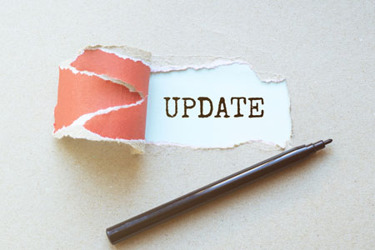An Update On 2020 U.S. Biosimilars Regulation & Litigation
By John Adkisson, Geoffrey Biegler, Jenny Shmuel, and Philip Chen, Fish & Richardson P.C.

We have seen numerous developments in the biosimilars space in 2020, even amidst the global COVID-19 pandemic — and in some cases, because of it.
Four new biosimilars were launched in the first half of 2020, bringing the total to 17 biosimilars on the U.S. market. The new biosimilars included Ruxience (rituximab-pvvr, biosimilar to Rituxan), Trazimera (trastuzumab-qyyp, biosimilar to Herceptin), Herzuma (trastuzumab-pkrb, biosimilar to Herceptin), and Ontruzant (trastuzumab-dttb, biosimilar to Herceptin). These and other biosimilars launched in the U.S. with discounts of 10 to 37 percent off the reference product list price, but not all have gained significant U.S. market share.
In particular, TNF inhibitors have struggled. Although the FDA has approved 12 TNF inhibitors, only two are on the market: Inflectra and Renflexis, both Remicade (infliximab) biosimilars. These infliximab biosimilars launched in 2016 and 2017, respectively, but recent reports indicate that these biosimilars “lack [] market penetration.”1 Ongoing antitrust litigation in the Eastern District of Pennsylvania is addressing allegations that Janssen’s alleged exclusionary contracts, anticompetitive bundling, and coercive rebates are the root cause of these market trends for infliximab biosimilars.
Other TNF inhibitors have not yet launched. Both Sandoz and Samsung Bioepis have FDA-approved Enbrel (etanercept) biosimilars but are embroiled in ongoing patent disputes with the reference product sponsor. Nine companies developing Humira (adalimumab) biosimilars, including several with FDA approval for their biosimilars, have settled with AbbVie under terms that delay launch until at least 2023. Recently, a district court dismissed antitrust claims against AbbVie related to both these settlements and AbbVie’s patenting strategies. That case is currently on appeal.
Regulatory Update
The FDA has approved two new biosimilars in 2020: Pfizer’s Nyvepria (pegfilgrastim-apgf, biosimilar to Neulasta) and Mylan’s Hulio (adalimumab-fkjp, biosimilar to Humira). The review periods for these biosimilars do not appear to have been impacted by the COVID-19 pandemic.
The FDA has issued several statements and guidance documents regarding biosimilars in 2020, as exemplified below.
In February, the FDA and FTC issued the Joint Statement of the Food & Drug Administration and the Federal Trade Commission Regarding a Collaboration to Advance Competition in the Biologic Marketplace. The statement advanced four stated goals: (1) to promote greater competition in biologics markets, (2) to deter behavior that impedes access to samples needed for biologic development, (3) to take appropriate action against false or misleading communications about biologics, and 4) to review patent settlement agreements involving biologics for antitrust violations. Coinciding with this announcement, the FDA issued a draft guidance titled Promotional Labeling and Advertising Considerations for Prescription Biological Reference and Biosimilar Products Questions and Answers.
On March 23, 2020, the “deemed to be a license” provision of the BPCIA went into effect. Biological products (such as insulin) historically approved under the Federal Drug and Cosmetics Act are now “deemed” approved under the Public Health Service Act. As a consequence, companies can now seek biosimilars and interchangeables of these biological products. The FDA was involved in preparing for the transition date by issuing relevant guidance and promulgating a final rule addressing the definition of “biological products” subject to the transition.
The FDA has also taken a number of pandemic-related measures. While suspending foreign and domestic inspections,2 the FDA announced that it is still “helping to ensure access to cost saving drugs and other needed medications through continued review and approval of generic drugs and biosimilars.”3 The FDA has also issued numerous guidance documents, including the June 2020 Good Manufacturing Practice Considerations for Responding to COVID-19 Infection in Employees in Drug and Biological Products Manufacturing, regarding manufacturing controls to prevent contamination of biologics with SARS-CoV-2 and the July 2020 FDA Guidance on Conduct of Clinical Trials of Medical Products During COVID-19 Public Health Emergency, regarding clinical trials in light of COVID-19 and its associated closures and quarantines.
District Court Litigation
Three new BPCIA cases have been filed in district court since the beginning of 2020, all in the District of Delaware. These include Amgen v. Hospira (Neulasta biosimilar), Amgen v. Hospira (Neupogen biosimilar), and Genentech v. Samsung Bioepis (Avastin biosimilar).
In the Amgen v. Hospira case regarding Neulasta, Amgen asserted U.S. Pat. No. 8,273,707 directed to methods of protein purification requiring a certain combination of salts at certain concentrations. Amgen had asserted this patent previously against two other biosimilar developers, Coherus and Mylan. Coherus was dismissed (affirmed on appeal) based on prosecution history estoppel barring Amgen from asserting infringement under the doctrine of equivalents against different combinations of salts than those in the claims. Shortly after the Coherus decision, the parties in Mylan stipulated to non-infringement. In the current case, Hospira moved to dismiss as well, alleging that Coherus also prevents Amgen from asserting this patent against different concentrations of the claimed salts. The motion is pending.
The second Amgen v. Hospira litigation is a follow on to litigation already pending between the parties in the District of Delaware. The new case involves a newly issued patent asserted against the same Neupogen biosimilar. Pfizer has moved to stay the new case until the 2018 case is resolved. The motion is pending.
The most recent BPCIA case is Genentech v. Samsung Bioepis, which relates to Samsung’s proposed biosimilar for Avastin. Samsung’s response to Genentech’s complaint is due at the end of August.
Several other BPCIA district court cases have been active in 2020. In particular, Genentech v. Amgen (17-cv-1407, D. Del.), concerning Amgen’s proposed Avastin biosimilar, settled earlier this year, but not before the district court issued an opinion on a matter of first impression.
In Genentech v. Amgen, Genentech asserted 26 patents based on Amgen’s Avastin biosimilar. Amgen filed counterclaims and affirmative defenses alleging that all of the asserted patents were invalid and/or unenforceable. Genentech then moved to dismiss Amgen’s counterclaims and affirmative defenses based on Amgen’s alleged failure to comply with the patent dance under the BPCIA. As to the counterclaims, Genentech argued they were barred by § 262(l)(9)(C) because Amgen did not provide information sufficient to describe its manufacturing process during the patent dance, and the BPCIA prevents a biosimilar that fails to adhere to subsection (2)(A) of the dance from “bring[ing] an action” for declaratory relief. Genentech also argued the defenses in Amgen’s invalidity counterclaims and affirmative defenses were barred because they were not disclosed during the patent dance. In a February 2020 opinion, the court rejected both of these arguments and denied Genentech’s motion to dismiss. The court held that the filing of counterclaims does not constitute “bringing an action” within the meaning of the statutory bar under § 262(I)(9)(C) and that a biosimilar applicant is not precluded from raising contentions not disclosed during the patent dance.
Federal Circuit Appeals
The Federal Circuit has decided five cases thus far in 2020: Janssen v. Celltrion, Amgen v. Hospira, Genentech v. Amgen, Genentech v. Immunex, and Immunex v. Sandoz.
In Janssen v. Celltrion (Fed. Cir. Mar. 5, 2020), Janssen appealed the district court’s decision granting Celltrion’s motion for summary judgment of non-infringement based on Celltrion’s ensnarement defense. Janssen argued that the district court erred in the analysis by using hindsight, improperly assessing the motivation to choose and combine references, and failing to draw reasonable inferences in Janssen’s favor. Celltrion responded and cross-appealed, arguing that Janssen lacked standing because not all co-owners of the asserted patent were joined as plaintiffs. In March 2020, the court issued a Rule 36 affirmance, concluding the case in Celltrion’s favor.
In Amgen v. Hospira (Fed. Circ. Dec. 16, 2019, Mar. 16, 2020), Hospira sought to overturn a jury verdict finding, among other things, that Hospira’s manufacture of certain batches of Epogen biosimilar was not protected by the safe harbor of § 271(e)(1) and that Hospira was liable for $70 million in reasonable royalty damages for infringement of Amgen’s patent. Amgen also cross-appealed with respect to a finding of non-infringement as to a second asserted patent. The Federal Circuit affirmed on all issues. Hospira petitioned for rehearing en banc on the safe harbor issues. In March 2020, the court denied Hospira’s petition without issuing an opinion on the merits.
Genentech v. Amgen (Fed. Cir. Mar. 6, 2020) and Genentech v. Immunex (Fed. Cir. July 6, 2020) both related to the District of Delaware’s denial of preliminary injunctive relief. The biosimilars in each case—Kanjinti (trastuzumab-anns) and Mvasi (bevacizumab-awwb), respectively—launched in July 2019 shortly after the district court’s decisions. In Genentech v. Amgen, Genentech asserted that the district court erred by finding there was no irreparable harm based on Genentech’s delay in seeking injunctive relief. The Federal Circuit issued a Rule 36 affirmance on March 6, 2020. In Genentech v. Immunex, the issue was whether Immunex was required to provide new notice of commercial marketing for each of its supplemental BLAs for Mvasi. The Federal Circuit affirmed on July 6, 2020, holding that a biosimilar applicant that has already provided notice of commercial marketing under § 262(I)(8)(A) need not provide another notice for a supplement concerning the same biological product.
In Immunex v. Sandoz (Fed. Cir. July 1, 2020), Sandoz challenged the district court’s finding that the two asserted patents related to Immunex’s Enbrel biosimilar were not invalid. Sandoz argued the patents were invalid for obviousness-type double patenting (ODP), lack of written description, and obviousness. The Federal Circuit affirmed. In particular, the court held that the patents were not invalid for ODP because there was no common ownership with other Immunex patents, and Immunex did not obtain “all substantial rights.” Judge Reyna, in dissent, stated that he would have found the patents invalid for ODP. Sandoz has recently petitioned for rehearing en banc.
Inter Partes Reviews
The first half of 2020 has been slow at the Patent Trial and Appeal Board. Thus far, only one biologic inter partes review (IPR) petition has been filed, representing a sharp decline from a high of more than 80 petitions in 2017.
While there have not been many biologic IPR filings in 2020 to date, several disputes reached resolution this year. For example, Amgen and Alexion settled three IPRs related to Alexion’s Soliris post-institution, with Amgen obtaining a non-exclusive, royalty-free U.S. license and the ability to bring a biosimilar to market in 2025. Novoimmune and UCB settled two IPRs related to Novoimmune’s Cosentyx pre-institution, and Amgen and Fresenius settled IPRs on two Amgen manufacturing patents, one pre-institution and one post-institution. The PTAB also invalidated claims in six patents asserted by Teva against Eli Lilly concerning Eli Lilly’s Emgality while upholding the validity of claims in three other patents.
Developments To Watch
There are several upcoming developments to watch in the biosimilars space.
The Supreme Court will decide in California v. Texas whether the individual mandate of the Affordable Care Act (ACA) is constitutional and, if not, whether it is severable from other provisions of the ACA. The case could have significant implications for biosimilars, as the BPCIA was enacted as part of the ACA and could potentially be struck down along with the entire ACA.
In Congress, several biosimilar-related bills are currently pending, many aimed at curtailing anticompetitive conduct and increasing access to biologic (and biosimilar) products. Senators Cornyn (R-TX) and Bennet (D-CO) introduced one of the newest such bills on July 1, 2020, S.4134, the Increasing Access to Biosimilars Act, aimed at reducing biologics costs for seniors.
Biosimilars may also play a role in ongoing efforts to develop a vaccine or treatment for COVID-19. In June 2020, Celltrion’s infliximab biosimilar (Remsima, CT-P13) was chosen for testing in the CATALYST study, a collaboration between the University of Birmingham and the University of Oxford to assess the effectiveness of potential therapeutics for the treatment of patients hospitalized with COVID-19.
The biosimilar market and regulatory and legal landscape have remained dynamic in the first half of 2020. Ongoing activity indicates that the remainder of 2020 should bring more interesting developments.
References:
- Yazdany, Jinoos, “Failure to Launch: Biosimilar Sales Continue to Fall Flat in the United States,” Arthritis & Rheumatology, Vol. 72, No. 6, June 2020, pp. 870-873.
- Certain domestic inspections resumed at the end of July 2020. See https://www.fda.gov/news-events/press-announcements/coronavirus-covid-19-update-fda-prepares-resumption-domestic-inspections-new-risk-assessment-system
- FED. FOOD & DRUG ADMIN., CDER’S WORK TO PROTECT PUBLIC HEALTH DURING THE COVID-19 PUBLIC HEALTH EMERGENCY (2020), https://www.fda.gov/drugs/coronavirus-covid-19-drugs/cders-work-protect-public-health-during-covid-19-public-health-emergency.
About The Authors:
 John Adkisson is the president and CEO of Fish & Richardson P.C., where he has 20-plus years of experience as a patent litigator. Over the past decade, he has focused on high-stakes pharmaceutical cases, including representing clients in Hatch-Waxman and the rapidly emerging field of biosimilar litigation. He has also acted as lead counsel in numerous life sciences post-grant proceedings before the U.S. Patent Trial and Appeal Board. In addition to his leadership role and long-time patent litigation practice, Adkisson serves as the chair of the firm’s Management Committee. He can be reached at adkisson@fr.com.
John Adkisson is the president and CEO of Fish & Richardson P.C., where he has 20-plus years of experience as a patent litigator. Over the past decade, he has focused on high-stakes pharmaceutical cases, including representing clients in Hatch-Waxman and the rapidly emerging field of biosimilar litigation. He has also acted as lead counsel in numerous life sciences post-grant proceedings before the U.S. Patent Trial and Appeal Board. In addition to his leadership role and long-time patent litigation practice, Adkisson serves as the chair of the firm’s Management Committee. He can be reached at adkisson@fr.com.
 Geoffrey Biegler is a principal at Fish & Richardson P.C., where his practice spans all areas of intellectual property litigation, with a particular focus on pharmaceutical and life sciences litigation. He is very knowledgeable about the Hatch-Waxman regulatory framework and the Biologics Price Competition and Innovation Act. Biegler has successfully managed and tried matters through all phases of litigation in district courts, at the U.S. International Trade Commission, in international jurisdictions, and in post-grant proceedings before the U.S. Patent Trial and Appeals Board. He can be reached at biegler@fr.com.
Geoffrey Biegler is a principal at Fish & Richardson P.C., where his practice spans all areas of intellectual property litigation, with a particular focus on pharmaceutical and life sciences litigation. He is very knowledgeable about the Hatch-Waxman regulatory framework and the Biologics Price Competition and Innovation Act. Biegler has successfully managed and tried matters through all phases of litigation in district courts, at the U.S. International Trade Commission, in international jurisdictions, and in post-grant proceedings before the U.S. Patent Trial and Appeals Board. He can be reached at biegler@fr.com.
 Jenny Shmuel, Ph.D. is a principal at Fish & Richardson P.C., where she has helped build the firm’s biologics and biosimilar litigation practice. She also represents pharmaceutical clients in competitor litigation and Hatch-Waxman litigation. Shmuel has extensive experience in all phases of litigation, and, over the last several years, has helped successfully defend a large pharmaceutical franchise and secure a significant damages award for a medical device manufacturer. She can be reached at shmuel@fr.com.
Jenny Shmuel, Ph.D. is a principal at Fish & Richardson P.C., where she has helped build the firm’s biologics and biosimilar litigation practice. She also represents pharmaceutical clients in competitor litigation and Hatch-Waxman litigation. Shmuel has extensive experience in all phases of litigation, and, over the last several years, has helped successfully defend a large pharmaceutical franchise and secure a significant damages award for a medical device manufacturer. She can be reached at shmuel@fr.com.
 Philip K. Chen is an associate at Fish & Richardson P.C., where he works on various patent litigation matters including pharmaceutical and biosimilar litigation. He can be reached at pchen@fr.com.
Philip K. Chen is an associate at Fish & Richardson P.C., where he works on various patent litigation matters including pharmaceutical and biosimilar litigation. He can be reached at pchen@fr.com.
The opinions expressed are those of the authors on the date noted above and do not necessarily reflect the views of Fish & Richardson P.C., any other of its lawyers, its clients, or any of its or their respective affiliates. This article is for general information purposes only and is not intended to be and should not be taken as legal advice. No attorney-client relationship is formed
